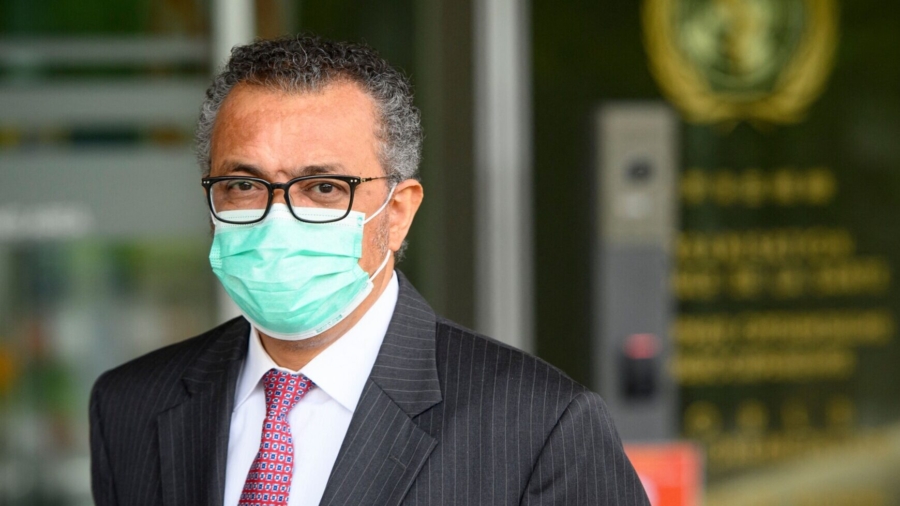The World Health Organization (WHO) this week altered its recommendations on COVID-19 vaccinations, softening language that once warned against vaccinating children.
The health body’s web page offering vaccine advice for the public on June 22 stated clearly, “children should not be vaccinated for the moment.”
“There is not yet enough evidence on the use of vaccines against COVID-19 in children to make recommendations for children to be vaccinated against COVID-19. Children and adolescents tend to have milder disease compared to adults. However, children should continue to have the recommended childhood vaccines,” the page said.
However, as of June 23, the page no longer offered the same warning.
It now says that “children and adolescents tend to have milder disease compared to adults, so unless they are part of a group at higher risk of severe COVID-19, it is less urgent to vaccinate them than older people, those with chronic health conditions, and health workers.”
“More evidence is needed on the use of the different COVID-19 vaccines in children to be able to make general recommendations on vaccinating children against COVID-19,” the page adds.
A WHO spokesperson when asked about the change via email pointed The Epoch Times to updated recommendations the body’s Strategic Advisory Group of Experts put forth last week regarding three vaccines.
The group has concluded that the Pfizer–BioNTech vaccine “is suitable for use by people aged 12 years and above,” the spokesperson said, adding: “Children aged between 12 and 15 who are at high risk may be offered this vaccine alongside other priority groups. Vaccine trials for children are ongoing and WHO will update its recommendations when the evidence or epidemiological situation warrants a change in policy.”
Most countries are not vaccinating children at this time, but some have allowed kids to get a vaccine.

U.S. drug regulators, for instance, initially allowed children as young as 16 to get the Pfizer–BioNTech shot. Regulators extended emergency use authorization for the jab to 12- to 15-year-olds last month.
About 8 million children between the ages of 12 and 17 have had at least one COVID-19 vaccine dose, according to U.S. government data as of June 22.
A health agency and its advisory panel are set Wednesday to discuss updated figures for heart inflammation seen in youth after vaccination. The number of cases reported to health agencies was at nearly 800 when a separate panel met on June 10, stoking concern among some doctors about continuing to administer vaccines to kids.
“I’m worried about myocarditis,” Dr. Cody Meissner, chief of the Division of Pediatric Infectious Disease at the Tufts Children’s Hospital, told fellow panel members. Myocarditis is the medical name of the heart inflammation syndrome. “Before we start vaccinating millions of adolescents and children, it is so important to find out what the consequences are because the COVID-19 disease is disappearing in adolescents and children,” he added.
“Given the unusual immunologic responses in general that we’re seeing in children, we need to be vigilant for vaccine-enhanced disease,” said Dr. Mark Sawyer, professor of clinical pediatrics at the University of California, San Diego School of Medicine.
Dr. Eric Rubin, adjunct professor in the Harvard TH Chan School of Public Health’s Department of Immunology and Infectious Diseases, was among the panel members to downplay concerns about myocarditis.
“We’re all worried about myocarditis. We’re not even sure that it’s an association right now, it’s very hard to tell,” he said, urging members to support expanding emergency use authorization of Moderna’s jab to younger children.
From The Epoch Times

